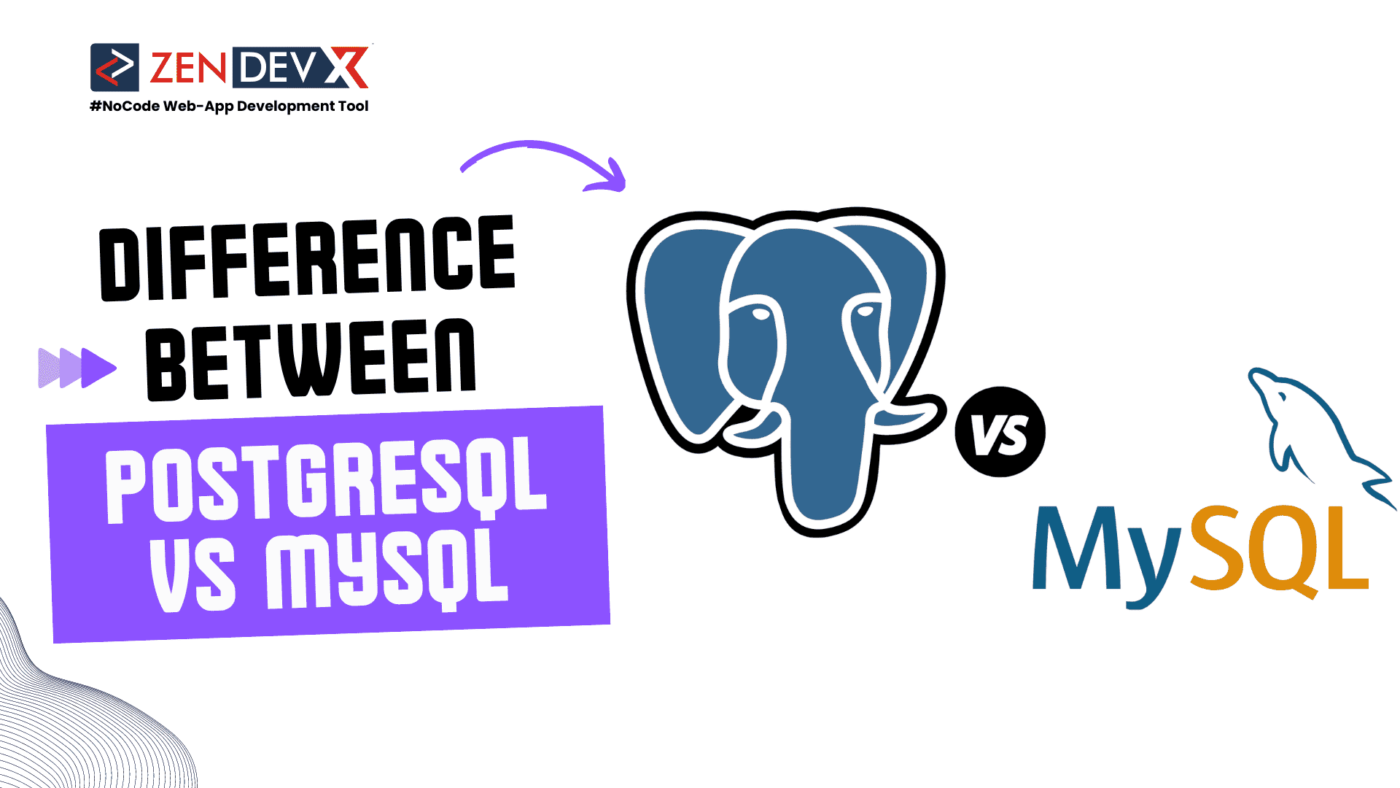Popular and highly efficient database systems are MySQL and PostgreSQL. Purchasing a database system is a crucial but sometimes difficult chore. Choosing one of MySQL or PostgreSQL might quickly become difficult as their features and purposes are somewhat similar. The fundamental ideas of both services will be broken down below together with some notable variations that can guide your decision on what’s best for you.
What is PostgreSQL ?
Given its far more features than rivals, PostgreSQL can be notably helpful for more complex and high-volume data processes. Reading about PostgreSQL has most likely brought you across the term “catalog-driven”. PostgreSQL thus lets you specify data types, index kinds, and functional languages in addition to storing tables and columns. Being an object-relational database, PostgreSQL offers additional capabilities not found in MySQL including table inheritance and function overloading.
Why is all this beneficial? Apart from MySQL, PostgreSQL is usually more scalable and manages concurrency better than other choices. Your PostgreSQL should increase as much as you require essentially. PostgreSQL also comes free to use and does not call for contracts or licensing.
What is MySQL ?
The most often used database management system worldwide is MySQL. Although it has fewer capabilities than PostgreSQL, it performs effectively for most general-purpose requirements. Furthermore, the popularity of MySQL makes it simple to locate staff members experienced with it; moreover, there are plenty of internet tools to enable you to resolve problems.
Since MySQL comes with the traditional LAMP stack—that is, an open-source package comprising Linux, Apache, HTTP Server, MySQL, and PHP—it is often used for scalable web applications. Many content management systems, including MySQL-based WordPress, depend on it. Even for beginners, regular updates and a friendly community help MySQL to be a dependable choice that is easy to learn.
PostgreSQL vs. MySQL: Principal Differences
1. Efficiency
PostgreSQL and MySQL both perform reasonably overall, hence it is difficult to say one is better than the other here. Much does depend on the situation, though.
For big systems where read/write performance and data authentication are crucial generally, PostgreSQL is the preferable option. PostgreSQL, as we discussed above, is better suited for more complicated searches since it includes several performance boosts absent in MySQL.
Generally speaking, MySQL is more appropriate for web-based initiatives where your database manages mostly data transactions. In these situations, MySQL is more well-known and the learning curve is somewhat simpler; so, there is essentially no need to complicate matters by investing in PostgreSQL.
2. Programming Languages and Operating Systems
PostgreSQL and MySQL share a number of programming language and operating system overlaps.
Among many others, Windows, Linux, MacOS, Solaris, Fedora, Open-Sourced Build, and many more fit both. While MySQL supports the open-source FreeBSD OS, PostgreSQL supports a few other operating systems including HP-UX OS and the open-source Unix O.
While MySQL supports several programming languages (Delphi, Java, Lips, PHP, etc.), PostgreSQL does have a somewhat higher count and features well-known alternatives such Java, JavaScript, and Python.
Basically, if you’re seeking for a specialist language or operating system, this might readily influence the MySQL vs. PostgreSQL choice. Still, in many cases your choice of OS and language will be compatible with both.
3. SQL Adherence
Meeting 160 out of 179 fundamental SQL standard criteria, PostgreSQL is more SQL compliant than MySQL. Still, this does not mean MySQL is absolutely poor in this regard. Though only partially SQL compatible, it could be enough for your requirements. Furthermore, valuable non-SQL tools not found in PostgreSQL that MySQL provides could be crucial for some applications.
In essence, you will need some investigation on your particular project and how it connects to your SQL compliance demands.
4. Privacy
Regarding security, PostgreSQL and MySQL both are strong. MySQL provides some extra peace of mind since it updates just marginally more often. This does not inevitably indicate, nevertheless, that PostgreSQL’s security is poor.
Native SSL support for encryptions and a built-in upgrade called SE-PostgreSQL give PostgreSQL more access restrictions should needed. Although some programmers think MySQL has a minor advantage in terms of security protections, the truth is both are quite safe solutions particularly if you’re careful about keeping current with security features.
5. Community Backup
Being the more often used system, MySQL naturally enjoys more community support. There are plenty of tutorials online to assist you understand the ins and outs of MySQL and numerous MySQL users who can assist you troubleshoot problems.
Still, PostgreSQL’s appeal is rising FAST. Although the community could be less than MySQL’s, in any objective sense it is not small. Online PostgreSQL users abound in expertise to be of value to you.
All things considered, community is actually a toss-up here with neither MySQL nor PostgreSQL leading clear-cut.
Which Among Others Should I Use ?
There is no one size fits all solution. In a very broad sense, PostgreSQL performs better for enterprise-level applications and projects due to its extra features especially if they involve more complex searches and more frequent write operations. With simpler applications, though, you usually can get away using MySQL.
But as we said a little earlier, ultimately your decision may be based on factors like programming language or OS compliance. You also have to take present capability of your business into account. Even for a more complicated project, you could be better suited using MySQL if your coders are not comfortable with PostgreSQL.
Conclusion :
Regarding the PostgreSQL vs. MySQL debate, there isn’t really a clear-cut winner here. Although PostgreSQL is maybe more sophisticated, a lot depends on personal preferences when deciding between the two. As you examine the advantages and drawbacks of each, you will have to give your personal demands much thought.


